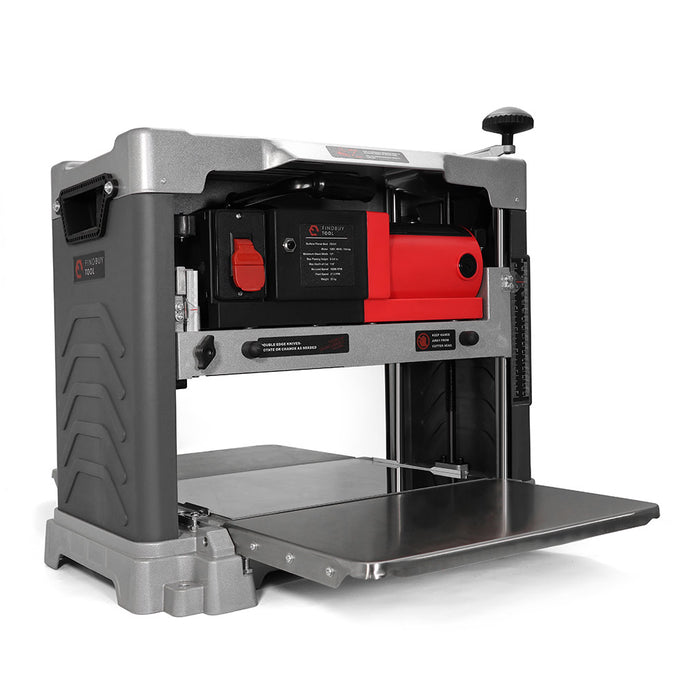For anyone looking to dive into woodworking, a planer is one of the most essential tools you'll need. Whether you're working with rough lumber or simply looking to smooth out uneven surfaces, a good planer can help you achieve professional results with ease. For beginners, the task of choosing the best planer can feel overwhelming due to the variety of models and features available. However, there are a few key aspects to consider when selecting a planer that will provide both ease of use and quality performance. A beginner-friendly planer should strike a balance between affordability, functionality, and the ability to grow with your skills as you advance in your woodworking journey.
When looking for the best planer for beginners, it's important to focus on key features such as ease of operation, portability, and durability. A user-friendly design with simple controls will make learning the craft easier, while a durable construction ensures the tool will last through the rigors of woodworking projects. Benchtop planers are an excellent choice for beginners, offering a compact design that doesn't take up much space but still delivers the power and capability needed for most tasks. These planers are typically more affordable and versatile, making them ideal for hobbyists and DIYers just starting out.
A good starting point for beginners is a planer that has adjustable depth settings, which allow you to control how much material is removed with each pass. This feature is essential for getting smooth, even surfaces and prevents the tool from removing too much material at once, which could lead to mistakes. Many beginner-friendly planers offer a simple knob or dial to adjust the depth, which makes it easier to control the process. This adjustability ensures that beginners can work at their own pace while still achieving clean, accurate results.
Another important factor for beginners is the planer's weight and ease of handling. Heavy-duty planers can be cumbersome and difficult to maneuver, especially for someone who's just getting into woodworking. A lightweight benchtop planer is much easier to move around and control, making it more manageable for users of all skill levels. Additionally, a planer with a good grip or ergonomic handles will help ensure that you have better control over the tool, reducing fatigue and increasing comfort during use. Many beginner planers are designed with these features in mind, providing a comfortable and user-friendly experience.
Noise level is another consideration for beginners. Traditional planers, especially larger models, can be quite noisy, which can be distracting or bothersome for some users. Many newer benchtop planers feature noise-reducing designs, such as helical cutterheads, which not only produce less noise but also offer smoother cuts. A quieter operation makes a planer more comfortable to use over extended periods and is particularly important if you're working in a small workshop or a shared space.
In terms of power, beginners don't necessarily need a top-of-the-line, heavy-duty motor to get started. A mid-range power motor will typically suffice for most woodworking tasks, including flattening, smoothing, and thicknessing lumber. When choosing a planer, look for models with motors that offer enough power to handle common tasks without being too overwhelming or difficult to control. A good rule of thumb is to choose a motor that runs at a consistent speed for smooth results while still providing enough torque to handle varying wood densities.
Durability is a key consideration when selecting a planer for beginners. You'll want a tool that can withstand repeated use without breaking down quickly. Look for models made from sturdy materials such as cast aluminum or steel, which are designed to hold up well over time. A planer with good build quality will not only last longer but will also deliver more consistent performance, even as you begin to take on more challenging projects. While it might be tempting to opt for the cheapest option, investing in a well-built planer will pay off in the long run.
Another feature to look for is an easy-to-use dust collection system. Planing generates a lot of wood shavings and dust, which can create a messy workspace and make it difficult to see your progress. Many beginner-friendly planers come with built-in dust ports that can be connected to a shop vacuum or dust extractor, helping to keep the area clean and improving air quality. This is especially beneficial for beginners who may not yet have developed efficient cleanup habits or who are working in smaller spaces where dust control is essential.
In addition to functionality, cost is an important consideration for beginners. As a new woodworker, you don't want to invest in a high-end model with features you won't fully appreciate yet. Fortunately, there are plenty of affordable, reliable planers that offer great value for money. Brands like DeWalt, Makita, and Craftsman offer excellent options that provide solid performance at a price point suitable for beginners. It's worth checking customer reviews and expert opinions to ensure that the model you choose is reliable and well-suited to your needs.
For those who plan to continue building their woodworking skills, it's also a good idea to choose a planer that can grow with you. Many models come with features that allow you to upgrade or add attachments as you gain experience. Some planers offer the option to change cutterheads or increase the cutting depth, which will allow you to take on more complex tasks as your skills improve.
In conclusion, choosing the best planer for beginners doesn't have to be a daunting task. By focusing on essential features like ease of use, portability, power, and durability, you can find a model that will help you get started on your woodworking journey with confidence. A benchtop planer with adjustable depth settings, a user-friendly design, and reliable construction will make it easier to achieve smooth, professional-looking results. With the right planer in hand, beginners can take their woodworking projects to the next level, honing their skills and creating high-quality pieces that will be enjoyed for years to come.


